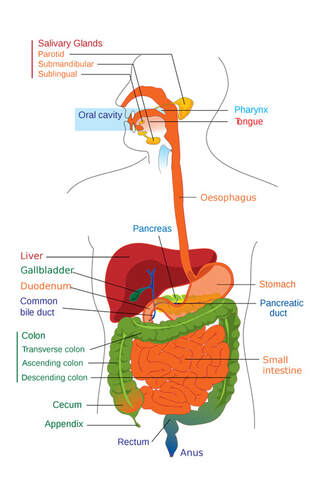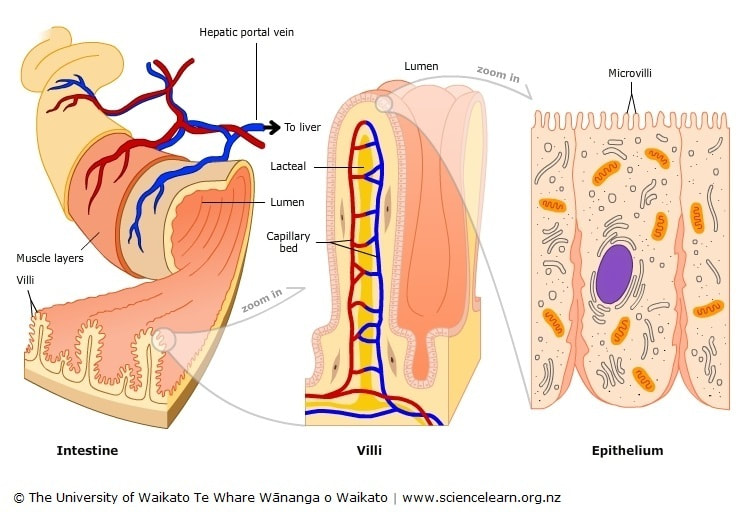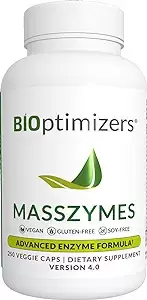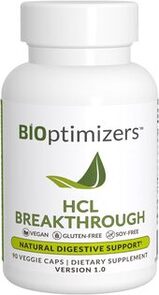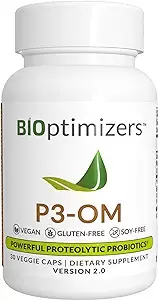Gut health and healthy digestion are arguably the foundation of good overall health. Recent new research has drawn connections between the health of your stomach and intestines and your brain, your heart, your immune system, and, of course your ability to absorb the nutrients that fuel all the biological mechanisms that keep your body healthy and functioning properly. Symptoms like bloating, constipation and heartburn can be precursors to more serious digestive conditions like IBS, SIBO, and even colitis.
Stages of Digestion
The main purpose of the digestive system is conversion - converting your food into energy - and determines whether or not you get value from the nutrients from the food you consume. In other words, to break large molecules down into smaller subunits due to the fact that:
The process of digestion occurs across a number of stages, including:
- Large molecules are typically chemically inert and need to be broken down and reassembled into usable products
- Large molecules are typically insoluble and cannot be absorbed into cells, whereas smaller subunits are soluble
The process of digestion occurs across a number of stages, including:
- Ingestion – food is taken into the body via the act of eating. The first phase of digestions begins in the mouth. Chewing tells the brain what food is being eaten. The body in turn begins to produce and secrete the right kind of enzymes for those foods. If carbohydrates are being consumed, the body will produce amylase in the form of saliva. If it is protein that is being consumed, protease is be created to help protein breakdown. It is is fat, then lipase will be secreted. Optimal chewing consists of 25-50 chews. However, in today's hyper-distracted world there is a clear problem resulting in low amounts of chewing, which results in suboptimal digestion.
- Digestion – food is broken down both physically (e.g. mastication) and chemically (e.g. enzymatic hydrolysis). Examples of chemical digestion include the secretion of enzymes. After 30 minutes, hydrochloric acid and enzymes are released by the gastrointestinal system which continue with nutrient breakdown.
- Absorption – digested food products are absorbed into the bloodstream and transported to cells. Valuable nutrients provide zero benefit unless they pass from the intestines into the blood stream. Absorption relies on the existence and function of the microbiome. Microbes in the gut actually further enhance enzymes to help break down any food that wasn't previously digested, and produces the nutrients for the host to absorb. Humans depend on this relationship for optimal health. This is why consuming foods rich in probiotics can facilitate digestion.
- Assimilation – digested food products are converted into the fluid and solid parts of a cell / tissue
- Elimination – undigested food residues are egested from the body as semi-solid faeces
If any of these stages of digestion are suboptimal, the overall digestive effect is not complete. Given that the digestive function is interdependent with remaining body systems,
Digestive system
The human digestive system consists of a long muscular tube and several accessory organs such as the salivary glands, pancreas and gall bladder. It is responsible for food ingestion and digestion, absorption of digestion products and the elimination of undigested materials.
Digestive Troubleshooting
Here are some questions to assess your digestive health:
If you answered yes to any of these questions, there is likely an opportunity to optimize your digestive function, and improve your overall quality of life to achieve your goals.
- Do you feel bloated?
- Do you burp often?
- Do you have flatulence often? Does it have a foul odor?
- How many bowel movement do your have in a day? (It should match the amount of meals you eat.)
- Do you feel "full" prolonged periods of time after eating?
- Do you have digestive upset?
- Do you ever experience constipation?
- Do you ever experience diarrhea?
- Do you experience abdominal cramps?
- Are your bowel movements consistent?
- Do your bowel movements have a foul odor?
- Do you get tired after you eat?
If you answered yes to any of these questions, there is likely an opportunity to optimize your digestive function, and improve your overall quality of life to achieve your goals.
Optimizing the digestive phases
You can eat the most nutrient-rich foods in the world but unless it gets broken down, travels into the small intestine and into the bloodstream, you may potentially be wasting your time, energy, and resources.
Take the Right Enzymes for Each Meal
A great way to optimize digestion is to consume the correct types of enzymes for the being that is being eaten (ideally before). A high-quality enzymes will survive the stomach acids and start breaking down food into usable nutrients. For most diets, products such as Masszymes can do exactly that.
The hydrochloric acid probelm
Stomach acid, also known as gastric acid, is composed of hydrochloric acid (HCL) and is essential for the digestion of key minerals and proteins. Therefore, without HCL, digestion is significantly impaired and the likelihood of vitamin and mineral deficiencies. Low stomach acid is referred to as hypochlorhydria, and it's the primary cause of heartburn, or gastroesophageal reflux disorder (GERD).
Low HCL levels can leave the body vulnerable to a number of health conditions and various symptoms including but not limited to:
Low HCL levels can leave the body vulnerable to a number of health conditions and various symptoms including but not limited to:
|
|
consume hcl with Each Meal
Individuals 30 years old or older may be of benefit to consume supplements that facilitate the function of HCL during the digestive process. Adding products like HCL Breakthrough can may a massive difference to facilitate digestion.
Probiotic-rich foods
Researchers have observed that bacteria will help with nutrients absorption - from macronutrients, such as proteins, carbohydrates, and fats, but also micronutrients, such as vitamins and minerals. Researchers have observed that higher levels of prebiotics, probiotics, and synbiotics (foods that create synergy with probiotics also typically high in fiber and prebiotics) in a diet augment mineral absorption, bone mineral density and integrity.
an effective probiotic protocol
When it comes to probiotics, it is best to have a strain that is transient. Ideally the good bacteria have the opportunity to dominate the pathogenic bacteria. In other words, it is best to look for a strain that is strong enough to wipe out bacteria cultures that have hijacked the digestive system. Finding a potent proteolytic probiotic strain, such as products like P3OM, can facilitate this process.
Supplemental Power-stack for optimal digestion
The following digestive stack is incredibly effective for correcting the underlying root issue of a vast majority of digestive issues:
This ultimate trio is an supplement regimen to optimize all five of the digestive stages and therefore increase the quality of life of the individual.
- HCL Breakthrough: Powerfully impacts the beginning of digestion to break down food and prepare it for the later stages
- MassZymes: Ultimate proteolytic enzyme formula that converts proteins into amino acids
- P3OM: Facilitates the breakdown of protein into amino acids, and facilitate later stages to maximize the volume of nutrients extracted out of food
This ultimate trio is an supplement regimen to optimize all five of the digestive stages and therefore increase the quality of life of the individual.
References
Clemente JC, Ursell LK, Parfrey LW, Knight R. The impact of the gut microbiota on human health: an integrative view. Cell. 2012 Mar 16;148(6):1258-70. doi: 10.1016/j.cell.2012.01.035. PMID: 22424233; PMCID: PMC5050011.
Brown AC, Valiere A. Probiotics and medical nutrition therapy. Nutr Clin Care. 2004 Apr-Jun;7(2):56-68. PMID: 15481739; PMCID: PMC1482314.
Hsu MF, Chiang BH. Stimulating effects of Bacillus subtilis natto-fermented Radix astragali on hyaluronic acid production in human skin cells. J Ethnopharmacol. 2009 Sep 25;125(3):474-81. doi: 10.1016/j.jep.2009.07.011. Epub 2009 Jul 18. PMID: 19619633.
Accarino AM, Azpiroz F, Malagelada JR. Attention and distraction: effects on gut perception. Gastroenterology. 1997 Aug;113(2):415-22. doi: 10.1053/gast.1997.v113.pm9247458. PMID: 9247458.
Mason AE, Epel ES, Kristeller J, Moran PJ, Dallman M, Lustig RH, Acree M, Bacchetti P, Laraia BA, Hecht FM, Daubenmier J. Effects of a mindfulness-based intervention on mindful eating, sweets consumption, and fasting glucose levels in obese adults: data from the SHINE randomized controlled trial. J Behav Med. 2016 Apr;39(2):201-13. doi: 10.1007/s10865-015-9692-8. Epub 2015 Nov 12. PMID: 26563148; PMCID: PMC4801689.
Brown AC, Valiere A. Probiotics and medical nutrition therapy. Nutr Clin Care. 2004 Apr-Jun;7(2):56-68. PMID: 15481739; PMCID: PMC1482314.
Hsu MF, Chiang BH. Stimulating effects of Bacillus subtilis natto-fermented Radix astragali on hyaluronic acid production in human skin cells. J Ethnopharmacol. 2009 Sep 25;125(3):474-81. doi: 10.1016/j.jep.2009.07.011. Epub 2009 Jul 18. PMID: 19619633.
Accarino AM, Azpiroz F, Malagelada JR. Attention and distraction: effects on gut perception. Gastroenterology. 1997 Aug;113(2):415-22. doi: 10.1053/gast.1997.v113.pm9247458. PMID: 9247458.
Mason AE, Epel ES, Kristeller J, Moran PJ, Dallman M, Lustig RH, Acree M, Bacchetti P, Laraia BA, Hecht FM, Daubenmier J. Effects of a mindfulness-based intervention on mindful eating, sweets consumption, and fasting glucose levels in obese adults: data from the SHINE randomized controlled trial. J Behav Med. 2016 Apr;39(2):201-13. doi: 10.1007/s10865-015-9692-8. Epub 2015 Nov 12. PMID: 26563148; PMCID: PMC4801689.


